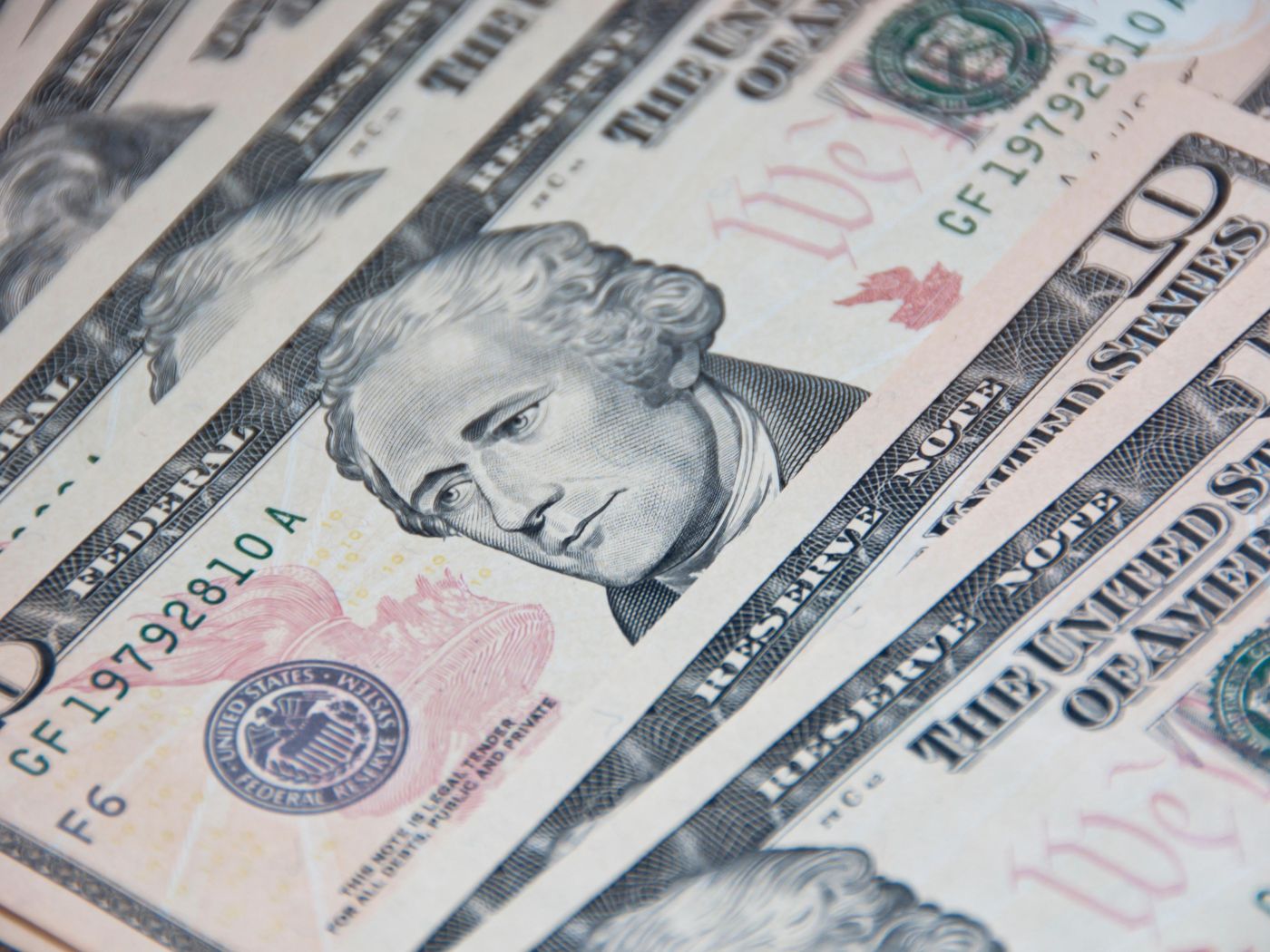In September 1789, President George Washington assigned Alexander Hamilton the task of solving the nation's debt. As Secretary of the Treasury, Hamilton had exactly 110 days to prepare a report on the nation’s credit status, which he would present to Congress in January.
This was a daunting assignment, to say the least. Between foreign, domestic and state debts, the United States owed almost $80 million, due in large part to the pay and supply of the Continental Army. Current income from federal tariffs and excise taxes amounted to just $4.4 million, enough to cover current government operations. Adding to the complexity of his task, the French were now in trouble politically and financially, and an unknown number of original bond owners had sold their government debts to speculators.
All solutions seemed to have roadblocks. If Hamilton shrugged off the debt as a responsibility of the Confederation, no lender would ever loan to the U.S. again and the country would remain an agricultural appendage of Europe. If he paid only notes and debts still held by their original owners, he would threaten small merchants and open the government up to case-by-case decisions. And if he paid off the debt entirely, he would need to impose the kind of taxes that had sparked Shays' Rebellion two years prior.
When it came time to present to Congress, Hamilton suggested that the United States look at debt not as a problem, but as an asset. He proposed to fund the debt through a gradual schedule of dependable tax resources, assume state debts as a measure of good policy, and generate new revenue through western land sales and taxes on luxuries—notably, booze.
His report spurred an uproar. Original bond owners and speculators cannot be viewed as the same, cried James Jackson of Georgia! The whiskey tax would be "odious" to farmers, yelled Aedanus Burke of South Carolina! Others came to Hamilton's defense. "The science of finance is new in America, and perhaps the report’s critics don’t understand quite what they’re asking for,” said Fisher Ames of Massachusetts.
Debate raged until June, when finally the House passed a bill incorporating his recommendations. The Senate agreed a month later, and the effects on public credit were immediate. U.S. government securities tripled in value, thanks to the assurance that they would be funded, handing Americans $30 million in capitalization that had not existed before. Riding this wave, Hamilton decided to implement part two of his plan.
1789 年 9 月,乔治·华盛顿总统将解决国家债务的任务交给了亚历山大·汉密尔顿。 作为财政部长,汉密尔顿有整整 110 天的时间来准备一份关于国家信用状况的报告,该报告将于 1 月提交给国会。
至少可以说,这是一项艰巨的任务。 在外债、内债和州债之间,美国欠了将近 8000 万美元,这在很大程度上是由于大陆军的军饷和补给。 目前来自联邦关税和消费税的收入仅为 440 万美元,足以支付当前的政府运营费用。 使他的任务更加复杂的是,法国人现在在政治和财政上都陷入了困境,而数量不详的原始债券持有人已将他们的政府债券卖给了投机者。
所有的解决方案似乎都有障碍。 如果汉密尔顿将债务视为联邦的责任而摆脱债务,那么任何贷方都不会再向美国提供贷款,而该国仍将是欧洲的农业附属物。 如果他只支付仍由原所有者持有的票据和债务,他就会威胁小商人,并让政府根据具体情况做出决定。 如果他完全还清债务,他将需要征收两年前引发谢伊斯叛乱的那种税收。
在向国会提交报告时,汉密尔顿建议美国不要将债务视为问题,而应将其视为资产。 他提议通过可靠的税收资源的渐进时间表为债务提供资金,将国家债务作为一项良好政策的衡量标准,并通过西部土地销售和对奢侈品(尤其是酒)征税来产生新的收入。
他的报告引起了轩然大波。 原来的债券所有者和投机者不能被视为同一个人,佐治亚州的詹姆斯杰克逊喊道! 南卡罗来纳州的 Aedanus Burke 喊道,威士忌税对农民来说是“可恶的”! 其他人为汉密尔顿辩护。 “金融科学在美国是新事物,也许该报告的批评者并不完全理解他们的要求,”马萨诸塞州的 Fisher Ames 说。
争论一直持续到 6 月,众议院最终通过了一项纳入他的建议的法案。 一个月后参议院同意了,对公共信用的影响立竿见影。 美国政府证券的价值翻了三倍,这要归功于它们将获得资金的保证,使美国人获得了 3000 万美元的资本化,这是以前不存在的。 乘着这股浪潮,汉密尔顿决定实施他计划的第二部分。
In December 1790, he submitted his proposal for a national bank. While his report would stabilize the nation's credit status, he said, the United States needed a bank to create an active economy. This proposal was met with an even fiercer round of critics. Here, James Madison parted company with Hamilton, arguing that the enumerated powers of the government did not include the authority to create a bank. Perhaps no one opposed Hamilton as vehemently as Thomas Jefferson. The new Secretary of State was so passionately anti-national bank that he wrote Washington a letter arguing his position. A bank, he penned, represented a boundless field of power and constitutional overreach.
Fortunately, while Jefferson had Washington's one ear, Hamilton had the other. Drafting his own letter to the President, he argued that there was a natural relationship between the institution of a bank and several enumerated powers of the government. For instance, the bank would act as an instrument to expedite the processing of receipts, collection of taxes and regulation of commerce. Above all, Hamilton said, to deny the power of the government to add ingredients to its plan would be to refine away all government.
After studying Hamilton’s letter for a day, Washington signed the bill for a national bank on February 25, 1791. While a victory for Hamilton, it marked an ominous note of division in Congress. Fisher Ames, the representative from Massachusetts, astutely observed in a letter to a friend that an invisible line had formed between members of Congress through the ordeal, settling into something of a North-South divide:
"To the northward, we see how necessary it is to defend property by steady laws. Shays confirmed our habits and opinions. The men of sense and property, even a little above the multitude, wish to keep the government in force enough to govern.
At the southward… A debt-compelling government is no remedy to men who have lands and negroes, and debts and luxury, but neither trade nor credit, nor cash, nor the habits of industry, or of submission to a rigid execution of law.
They have continued antis, and have assiduously nursed the embryos of faction, which the adoption of the Constitution did not destroy. It soon gave popularity to the antis with a grumbling multitude. It made two parties.”
1790 年 12 月,他提交了关于建立国家银行的提案。 他说,虽然他的报告将稳定国家的信用状况,但美国需要一家银行来创造活跃的经济。 这一提议遭到了更为激烈的批评。 在这里,詹姆斯麦迪逊与汉密尔顿分道扬镳,认为政府的列举权力不包括创建银行的权力。 也许没有人像托马斯·杰斐逊那样强烈反对汉密尔顿。 新任国务卿非常反对国家银行,以至于他给华盛顿写了一封信来表明他的立场。 他写道,一家银行代表着无限的权力领域和宪法的越权范围。
幸运的是,杰斐逊有华盛顿的一只耳朵,而汉密尔顿有另一只耳朵。 他起草了自己给总统的信,认为银行机构与政府列举的几项权力之间存在自然关系。 例如,银行将充当加快收据处理、征税和商业监管的工具。 汉密尔顿说,最重要的是,否认政府为其计划添加成分的权力将削弱所有政府。
在研究了一天汉密尔顿的信后,华盛顿于 1791 年 2 月 25 日签署了国家银行法案。虽然汉密尔顿取得了胜利,但它标志着国会分裂的不祥预兆。 来自马萨诸塞州的代表费舍尔·埃姆斯在给朋友的一封信中敏锐地观察到,通过这场磨难,国会议员之间形成了一条无形的界限,陷入了某种南北分歧:
“在北方,我们看到通过稳定的法律保护财产是多么必要。谢伊斯证实了我们的习惯和观点。有理智和财产的人,即使稍微高于大众,也希望保持政府足够强大以进行统治。
在南方……对于那些拥有土地和黑人、债务和奢侈但既没有贸易也没有信贷、现金、工业习惯或服从严格执法的人来说,债务强制政府不是补救办法。
他们继续反对,并孜孜不倦地培育派系的胚胎,宪法的通过并没有摧毁它。 它很快就受到了抱怨群众的欢迎。 它制造了两个派对。”





